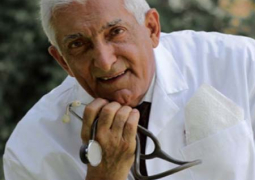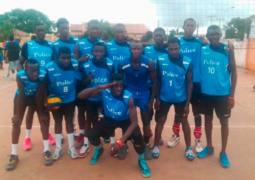Magistrate Colley was flanked by panelists Sosseh Colley and Cole.
Given the opportunity to challenge, discredit and contradict Mr Sowe who had earlier testified in support of GTU, Karamo Sanneh asked him whether there were any exhibits tendered by him, Mr Sanneh, which the defendant objected to.
In response, Mr Sowe said that he did not know because he was not in the tribunal.
It was put to him that there was no exhibits tendered by him, Mr Sanneh, and objected to by the defendant and Mr Sowe repeated his answer that he was not in the tribunal.
Mr Sanneh again put it to Mr Sowe that Gambia Teachers’ Union and Gambia Teachers’ Union Cooperative Credit Union are not the same institution.
Mr Sowe stated that they are the same. He further said that the GTU is the parent body of the GTUCCU, adding that a resolution was passed by delegates to establish GTUCCU as an organ of the GTU.
Mr Sanneh asked Mr Sowe why then each of the institutions has its own administrative head, management and staff.
Mr Sowe responded that each of the institutions by virtue of the laws of The Gambia was registered and aligned to its institutional home, but this does not rule out the fact that they are the same, because the general secretary of the GTU serves as the chief executive officer and chairperson of the supervisory board.
Mr Sanneh put it to Mr Sowe that GTUCCU is a microfinance institution.
Mr Sowe said GTUCCU is a microfinance entity of the GTU, adding that the GTU is governed by national executive committee headed by the president and that the national delegate congress is the ultimate body of the GTU.
Karamon Sanneh put it to Mr Sowe that he, Mr Sanneh, was employed by the GTU and not the GTUCCU.
In response, Mr Sowe told the tribunal that Mr Sanneh was formally employed by the GTU as stipulated in the appointment letter of Mr Sanneh.
At this juncture, Mr Sannwh referred to the said letter and asked Mr Sowe whether the contents were correct. Mr Sowe answered in the positive.
Mr Sanneh referred to defence exhibit 1 in the second paragraph and challenged Mr Sowe that it was false but Mr Sowe said it was true.
Mr Sowe added that Mr Sanneh refused to go to work when there was a feast, and decided to send his girl-child to man the post.
Mr Sanneh asked him whether this was true. Mr Sowe answered that it was true, adding that it was a subject of a warning letter.
Mr Sanneh asked him how he knew that he did not go to work that day.
Mr Sowe told the tribunal that Mr Sanneh was absent on duty and his absence was reported by his immediate supervisor, and that his attention was drawn for the need to put in place a replacement.
Mr Sanneh then asked him what the name of the girl-child is and her age, but Mr Sowe said he did not know.
Mr Sanneh challenged Mr Sowe that he relied on hearsay, but he denied this.
Mr Sanneh asked him to tell the tribunal what type of feast he was talking about. Mr Sowe said it was Tobaski, but could not remember the date.
Challenged that the date attached to the duty roster was wrong, Mr Sowe said it was correct.
At this juncture, Mr Sanneh applied to the tribunal for Mr Sowe to make the duty roster available to the tribunal.
He put it further to Mr Sowe that on that particular feast, he was on duty and took over from the guard on duty, adding that there was a handing over note, but Mr Sowe said this was not true.
Mr Sowe further told the tribunal that the matter regarding Mr Sanneh’s absence, on this particular day, was put to Mr Sanneh and he did not contest it and could have refutted it before his termination.
He said that Mr Sanneh was given a final warning letter on his poor conduct and attitude to work, adding that Mr Sanneh personally wrote to apologise for lying against the deputy secretary general and that he was seeking for forgiveness for the sake of God, because he was carried away by Satan.
But Mr Sanneh challenged Mr Sowe that the warning letter he was talking about was not true, and that he was at work and took over from a colleague.
The case was adjourned till 11 March 2015.
Read Other Articles In Article (Archive)
Banjul Youth speaker return from Africa-EU course
Jun 17, 2010, 1:07 PM



